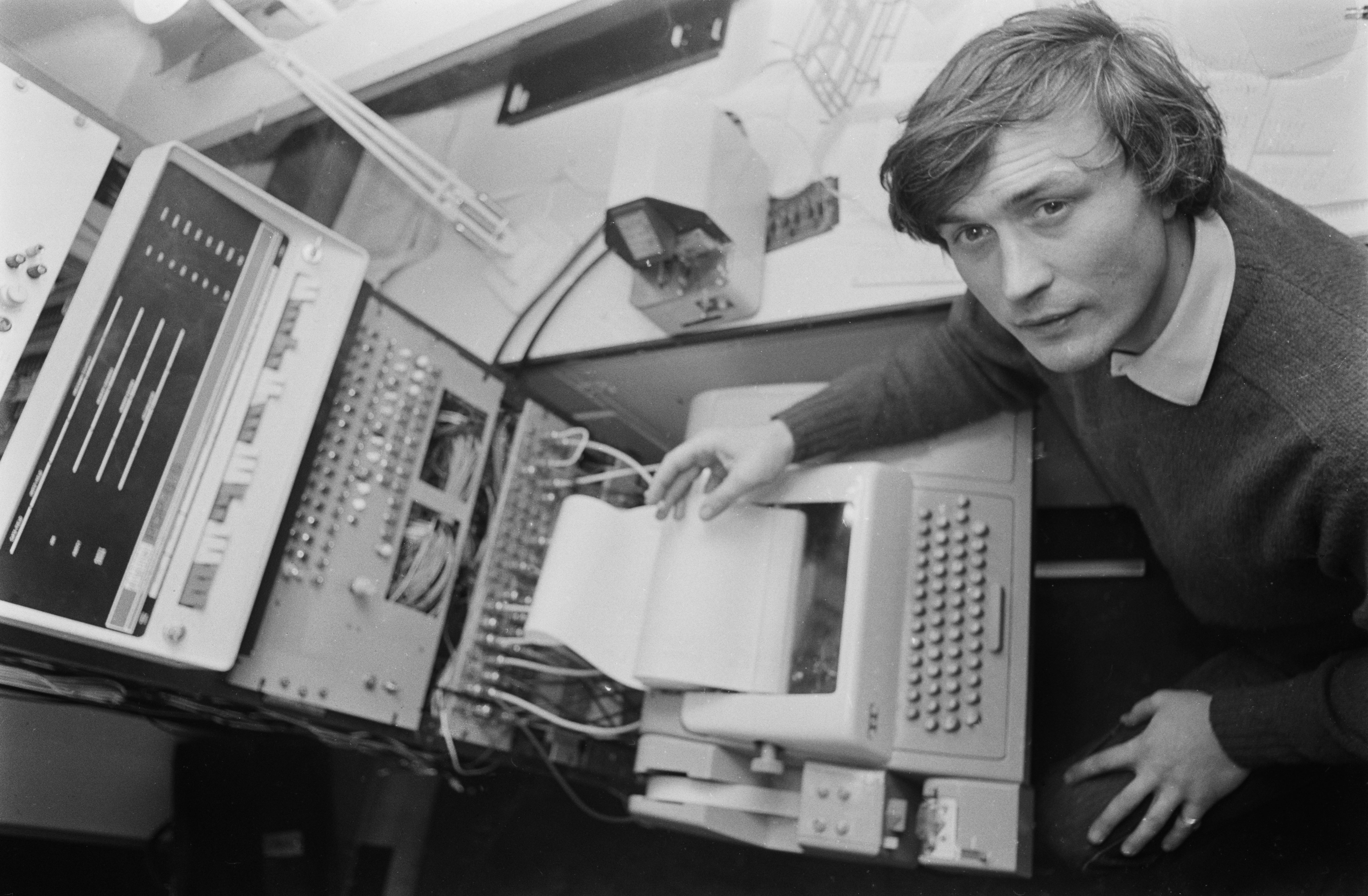Peter Zinovieff: Composer and electronic music pioneer
Having created computers that The Beatles and Pink Floyd used, the founding father of synth transformed the sound of pop for good

Peter Zinovieff was the pioneering inventor who designed some of the first commercially available music synthesiser systems, as used by bands including Pink Floyd, The Beatles, The Who and The Chemical Brothers.
Zinovieff, who has died aged 88, was once admiringly described by Jon Lord, the keyboardist of Deep Purple, as “a true mad professor type”.
Peter Zinovieff was born in 1933 in Fulham, London, as the son of aristocratic Russian immigrants, Leo and Sofka Zinovieff. He was educated at Guildford Royal Grammar School and Gordonstourn, going on to read geology at Oxford University.
From the late 1950s onwards Zinovieff had experimented with sound, initially using second-hand waveform generators and tape recorders. However, as he told an interviewer later, “I couldn't stand the fiddliness of it. I decided very soon that sequencers were the answer – that's ultimately what led me to computers”.
Zinovieff was one of the first people in the world to use a computer at his home. Installed in the basement of his house in Putney, two Digital Equipment Corporation PDP 8 mini-computers were programmed to produce some of the world’s first computer-generated music. “It was a really gigantic change in my life,” he later commented. “From being a hobby, this now had to be a very serious endeavour indeed, to invest that amount of money.”
A composition by these machines was premiered as the “Partita for Unattended Computer” at Queen Elizabeth Hall, London, in 1967. He recalled: “It played a composition which nobody had heard before, even myself. I mean this was a random composition. So this was the first time a computer had played a composition by itself.”
Around the same time, and together with Delia Derbyshire and Brian Hodgson, Zinovieff established Unit Delta Plus, as a pioneering collaboration between electronic music makers. The collective worked on compositions and promoted using electronic music in film, television and advertising. Although short-lived, lasting only a year, it set the scene for the emergence of electronic music as a distinct art form.
Zinovieff founded his company, Electronic Music Studios (EMS), in 1969, with colleagues Tristram Cary and David Cockerell. The business made electronic synthesiser equipment. Promoted with the slogan “Think of a sound – now make it” and costing around £300 (equivalent to £4,000 today), their portable VCS3 device – and Synthi AKS carried in a briefcase – offered musicians infinite possibilities for creating their own soundscapes.
The VCS3 was employed to extraordinary effect by The Who, whose unmistakable intro to “Won’t Get Fooled Again” owes its unearthly sound to Pete Townsend playing his Lowry organ through the synthesiser. The French ambient music pioneer Jean-Michel Jarre once told Liberation how he swapped a guitar and tape recorder for a VCS3. “There was a very poetic innocence in the first synthesisers,” he mused. “This technological vision was like the invention of the helicopter in aviation: irrational, surrealistic, of a future that is still being invented.”
Even more ambitious was the Synthi 100 device, which looked more like a studio with a mixing desk, and was first developed as a commission for Radio Belgrade. The company’s second customer for the Synthi 100 was the BBC Radiophonic Workshop, which is best known for its work on the original theme tune and sound effects for Doctor Who.
While the VCS3 was a huge success in its time, Zinovieff and his colleagues were defrauded by the company’s American distributor, resulting in large financial losses. In 1979 EMS was made bankrupt and closed down.
As well as creating the machines which played the music, Zinovieff had also enjoyed composing the music itself. He collaborated with Harrison Birtwhistle, creating the libretto for The Mask of Orpheus, which premiered in 1986 at the English National Opera. In 2015 Zinovieff issued Electronic Calendar - The EMS Tapes, a double-CD compilation of electronic music from his time running EMS.
Jarre said in tribute: “Thank you Peter, the father of the VCS3 and the AKS, I owe you so much.”
Zinovieff was married four times. He is survived by his wife Jenny and six children from previous marriages.
Peter Zinovieff, engineer and composer, born 26 January 1933, died 23 June 2021
Subscribe to Independent Premium to bookmark this article
Want to bookmark your favourite articles and stories to read or reference later? Start your Independent Premium subscription today.